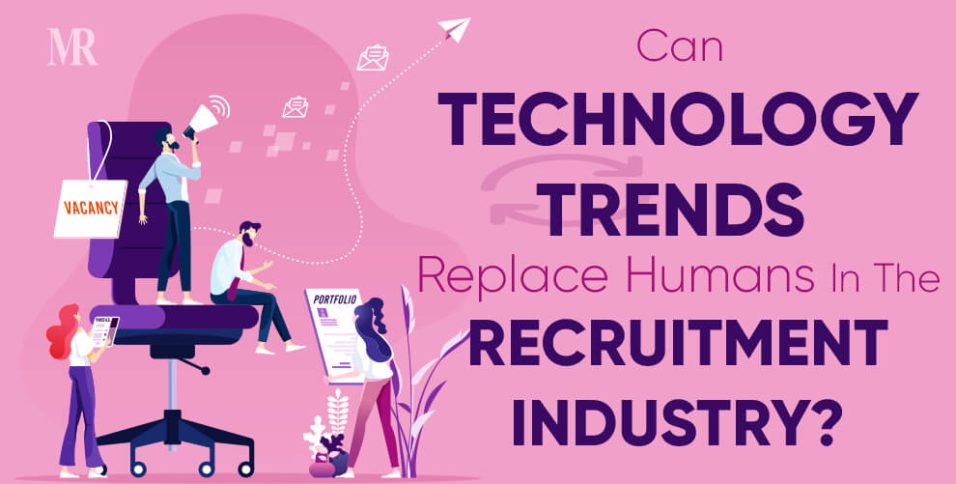Let’s find out here.
Since millennium 2000, the way people access and use the internet to interact has greatly evolved. Today, technology has boomed in almost every industrial sector making them more efficient in their business operations.
While technology trends are fostering industries to develop their every single branch, the recruitment industry is still hiring candidates in a traditional way. Ignored for decades, the old recruiting process without alteration has been part of almost every industry in the world. Now, what does that mean for them? Does that mean humans should start conversing and let technology replace them? Attention! None of that is going to happen because people still crave for human interactions and rely on human judgment.
If one takes a closer look at the recruitment industry, it’s the recruiter’s job to help decide the career path of the candidates, if they are eligible for a specific position in a company as well as track their successes and failures. This allows the recruiters to gain better insights and clear ideas about how they can support the job-seekers in their journeys. However, as technology is changing and more users are spending time online, the recruitment industry needs to adopt and implement these changes in order to walk parallel with the others.
Why traditional employed methods are a challenge today?
There’s a lot of talk around technology trends playing a superior role in the recruitment industry but the truth is companies still use outdated practices, old processes, zero software tools, and no relevant data to respond to the current demands of the talent market. Sadly, there are few recruitment firms led by people following old school principles, who take high-stakes decisions based on their own assumptions (unconscious bias) and most of the time overreact rather than proactively and strategically answering to talent needs. This leads to rushed decisions and to one-third of new hires quitting their jobs after just a few months.
According to the studies, the data of thousands of candidates found an algorithm capable of simplifying and quantifying elements that companies believe were impossible to handle. These studies have shown that even though individual choices are unconscious and spontaneous, they do reflect who they are. The traditional method of sourcing candidates skips these factors which are significant aspects of personality judgement.
Recruitment industries need to move towards technology
Only 13% of global employees are truly committed to their jobs. It is extremely tragic to see that the world’s biggest sector (manpower and human resource) is struggling around industries. In this era of technological transformation, there is a dire need for a single solution such as one integrated system that can provide end-to-end hiring solutions to companies. Keeping this requirement in mind, a cloud-driven integrated system that has the potential to procure long CVs based on keywords and phrases of individual’s behavior can prove to be beneficial.
The true purpose behind this should be to help companies develop their internal business and attract talent externally. This can be done by making the recruitment process candidate-centric by adapting it to each individual personality. Moreover, finding a job should be customized according to the needs, relevant skills, and personality traits. Ultimately, a job must be able to satisfy maximum of candidates’ expectations. If data and predictive approach is applied, it will better facilitate the retention and recruitment process. Additionally, tech-driven solutions such as Applicant Tracking System (ATS) software to manage the recruitment and hiring process will be highly beneficial.
But the big looming question is can technology trends completely replace humans?
Technology cannot solve everything; recruiters do need a dedicated team who can be deployed to leverage this technology to find potential job seekers. Therefore, completely relying on machines and technologies is not going to fulfil all the requirements of this industry. What initially began from job boards, later moved to platforms such as online recruitment portals and social media based channels such as LinkedIn, and now has come to Artificial Intelligence and Machine Learning based tools.
At the end of the day, recruitment is a people’s business. A robot or a machine might be able to all the tick boxes and match what’s on a piece of paper. But, it can never pull out the key motivator and eligible candidate from a group of people based on gut feeling and judgment like humans and that is what the human recruitment industry is essentially all about. Certainly, technology is needed for simplifying the shortlisting and filtering processes from large number of candidates but it is hard to say that if it can ever compete with a human recruiter.






